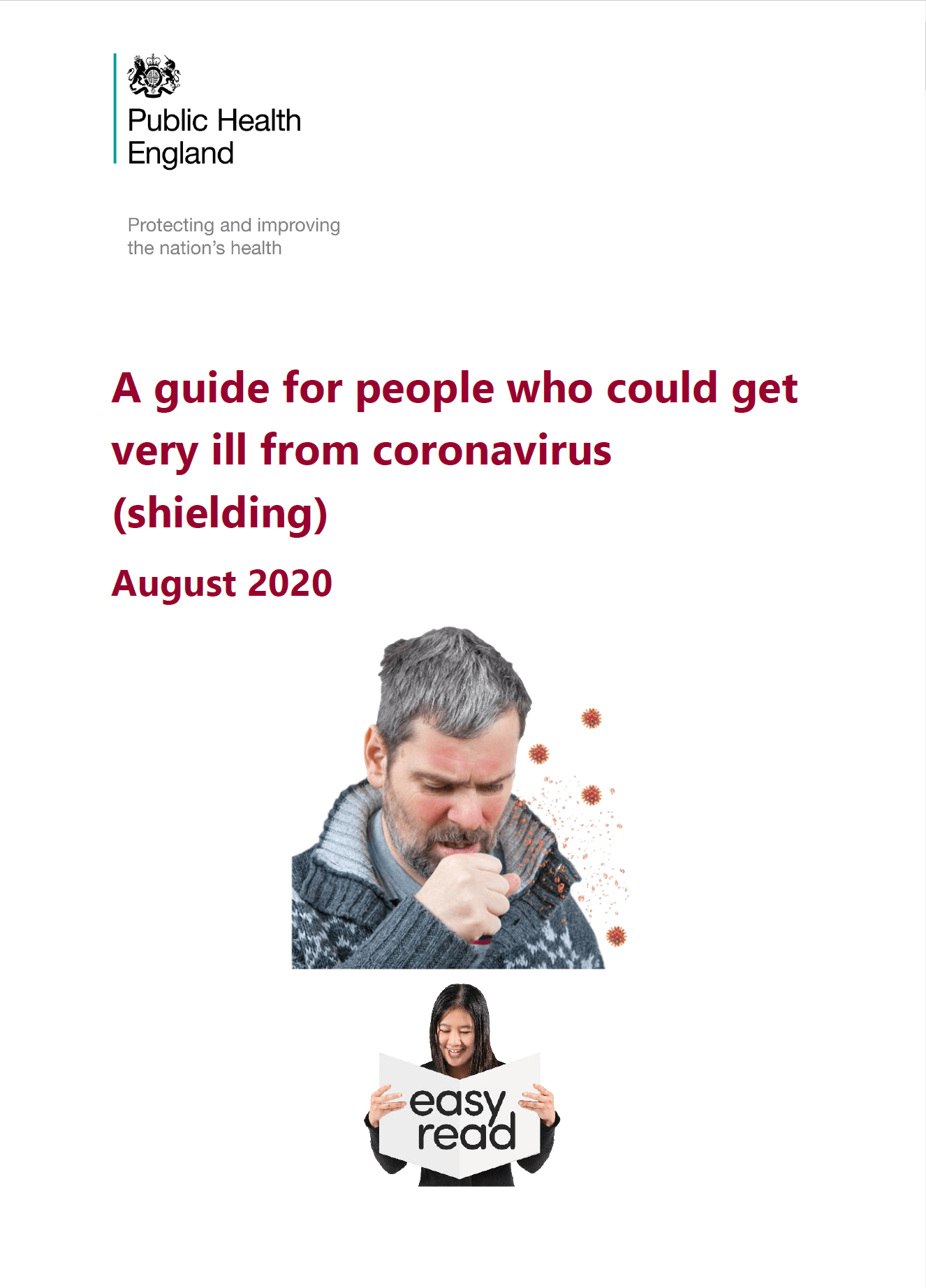Shielding advice for the extremely vulnerable

This article contains information on shielding, the extremely vulnerable and how to keep safe, active and well.
UPDATE on Shielding - 4/5th November
On the 5th November these new National restrictions came into effect and now apply to England:
- you cannot meet socially with anyone indoors unless they’re in your support bubble
- there are changes to how many people you can meet outside
- you must not travel in the UK or overseas, unless for a specific reason, like education, work or a caring responsibility
On the 4th November, the government sent out a new (third) letter to patients considered extremely vulnerable to the virus. This letter provided new guidance to those previously shielding.
Clinically extremely vulnerable people are advised to stay at home, except for exercise or essential health appointments.
The Government has published updated shielding guidance for people who are deemed clinically extremely vulnerable. You should stay at home as much as possible but are encouraged to go outdoors for exercising and attending health appointments. You are strongly advised to work from home. If you cannot work from home, then you should not attend work. You may be eligible for the Coronavirus Job Retention Scheme (furlough). This letter is a formal shielding notification and can act as evidence for your employer to show that you cannot work outside your home until 2 December, including for statutory sick pay (SSP) purposes.
UPDATE on Shielding - 9th September
The Government has updated national (England) guidance and laws to restrict the gathering of people of more than 6 people in 2 or more households - known as the "rule of 6".
It has also updated its guidance to those people considered clinically extremely vulnerable to COVID-19.
Please check this out. In particular, it contains information about a COVID-secure workplace and help from NHS responders for things such as food and prescription deliveries.
Please also find an up-to-date Easy Read guide for people who were shielding, produced by the government.
UPDATE on Shielding - 23rd June
The Government has now published its long-awaited update on shielding and written a new letter to those on their "COVID-19 at-risk" database which by some accounts now exceeds 2 million people.
The following section is a summary of what has changed in this latest advice but for the full details please visit the government website article on shielding.
What has changed?
The government has updated its guidance for people who are shielding taking into account that coronavirus COVID-19 infection rates have decreased significantly over the last few weeks. This guidance remains advisory.
People who are shielding remain vulnerable and should continue to take precautions but may now choose to leave their home, as long as they are able to maintain strict social distancing. If you choose to spend time outdoors, you may do so with members of your own household. If you live alone, you can spend time outdoors with one person from another household. Ideally, this should be the same person each time.
If you do go out, you should take extra care to minimise contact with others by keeping 2 metres apart. This guidance will be kept under regular review.
On 22 June the government set out a series of steps for further relaxing shielding guidance which will come into effect on 6 July and 1 August.
From 6 July, the government will be advising:
- you may, if you wish, meet in a group of up to 6 people outdoors, including people from different households, while maintaining strict social distancing
- you no longer need to observe social distancing with other members of your household
- in line with the wider guidance for single adult households (either an adult living alone or with dependent children under 18) in the general population, you may from this date, if you wish, also form a ‘support bubble’ with one other household. All those in a support bubble will be able to spend time together inside each other’s homes, including overnight, without needing to socially distance
From 1 August the government will be advising that shielding will be paused. From this date, the government is advising you to adopt strict social distancing rather than full shielding measures. Strict social distancing means you may wish to go out to more places and see more people but you should take particular care to minimise contact with others outside your household or support bubble. In practice this means that from 1 August:
- you can go to work, if you cannot work from home, as long as the business is COVID-safe
- children who are clinically extremely vulnerable can return to their education settings if they are eligible and in line with their peers. Where possible children should practise frequent hand washing and social distancing
- you can go outside to buy food, to places of worship and for exercise but you should maintain strict social distancing
- you should remain cautious as you are still at risk of severe illness if you catch coronavirus, so the advice is to stay at home where possible and, if you do go out, follow strict social distancing
The guidance for the clinically extremely vulnerable group remains advisory. More detailed advice will be updated in this guidance as the changes in advice come into effect on 6 July and 1 August.
Unless we see a significant rise in cases we expect the shielding programme to be paused on 31 July.
Those in receipt of centrally provided food boxes and medicine deliveries will continue to receive this support until the end of July if they want it.
Read further information on schools and the workplace for those living in households where people are shielding.
The guidance in the full advice applies until the 6 July 2020.
UPDATE on Shielding - 31st May
The Government is currently advising people to shield until 30 June 2020. It will review the shielding guidance by 15th and write to all shielding patients by 30th June setting out next steps.
The government has updated its guidance for people who are shielding taking into account that COVID-19 disease levels have decreased over the last few weeks.
People who are shielding remain vulnerable and should continue to take precautions but can now leave their home if they wish, as long as they are able to maintain strict social distancing. If you choose to spend time outdoors, this can be with members of your own household. If you live alone, you can spend time outdoors with one person from another household. Ideally, this should be the same person each time. If you do go out, you should take extra care to minimise contact with others by keeping 2 metres apart. This guidance will be kept under regular review.
Read further information on schools (as well as later on this page) and the workplace for those living in households where people are shielding. This guidance remains advisory.
For the full advice please visit the government website article on shielding.
What is shielding?
Shielding is a measure to protect extremely vulnerable people by minimising interaction between those who are extremely vulnerable and others. This means that those who are extremely vulnerable should not leave their homes, and within their homes should minimise all non-essential contact with other members of their household. This is to protect those who are at very high risk of severe illness from coronavirus (COVID-19) from coming into contact with the virus.
If you think you have a condition which makes you extremely vulnerable or have received a letter from NHS England you are strongly advised to shield yourself, to reduce the chance of getting coronavirus (COVID-19) and follow the face-to-face distancing measures below.
For more information visit the government site for guidance.
Who are considered "extremely vulnerable"?
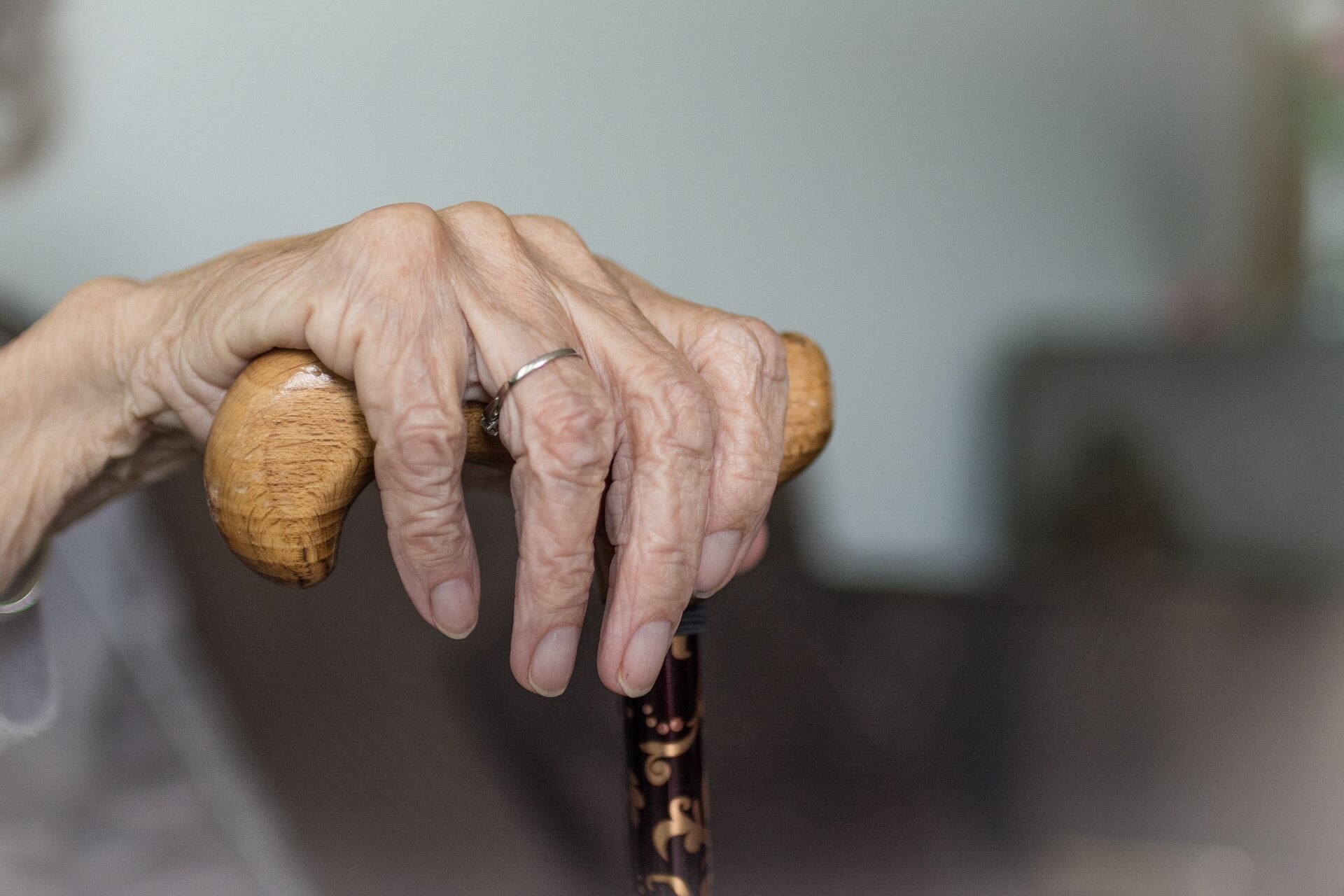
The government has set out the criteria it considers when assessing whether someone is extremely vulnerable to COVID-19 (Coronavirus).
Criteria for extremely vulnerable people
For kidney patients the key groups are considered extremely vulnerable are transplant and dialysis patients. Other patients with Chronic Kidney Disease (CKD), diabetes, or asthma but without other co-morbidities are considered vulnerable.
NOTE: Dialysis patients were mentioned in the government pre-announcement but are not explicitly mentioned at the moment in these criteria. However we are assured by renal doctors that dialsysis patients qualify: "Dialysis patients can use the criteria of having a rare disease or condition which increases the risk of infection." Kidney Care UK has provided additional information here:
https://www.kidneycareuk.org/news-and-campaigns/coronavirus-advice/#shielding
I am an extremely vulnerable person. What should you do if you have not received a letter from the government?
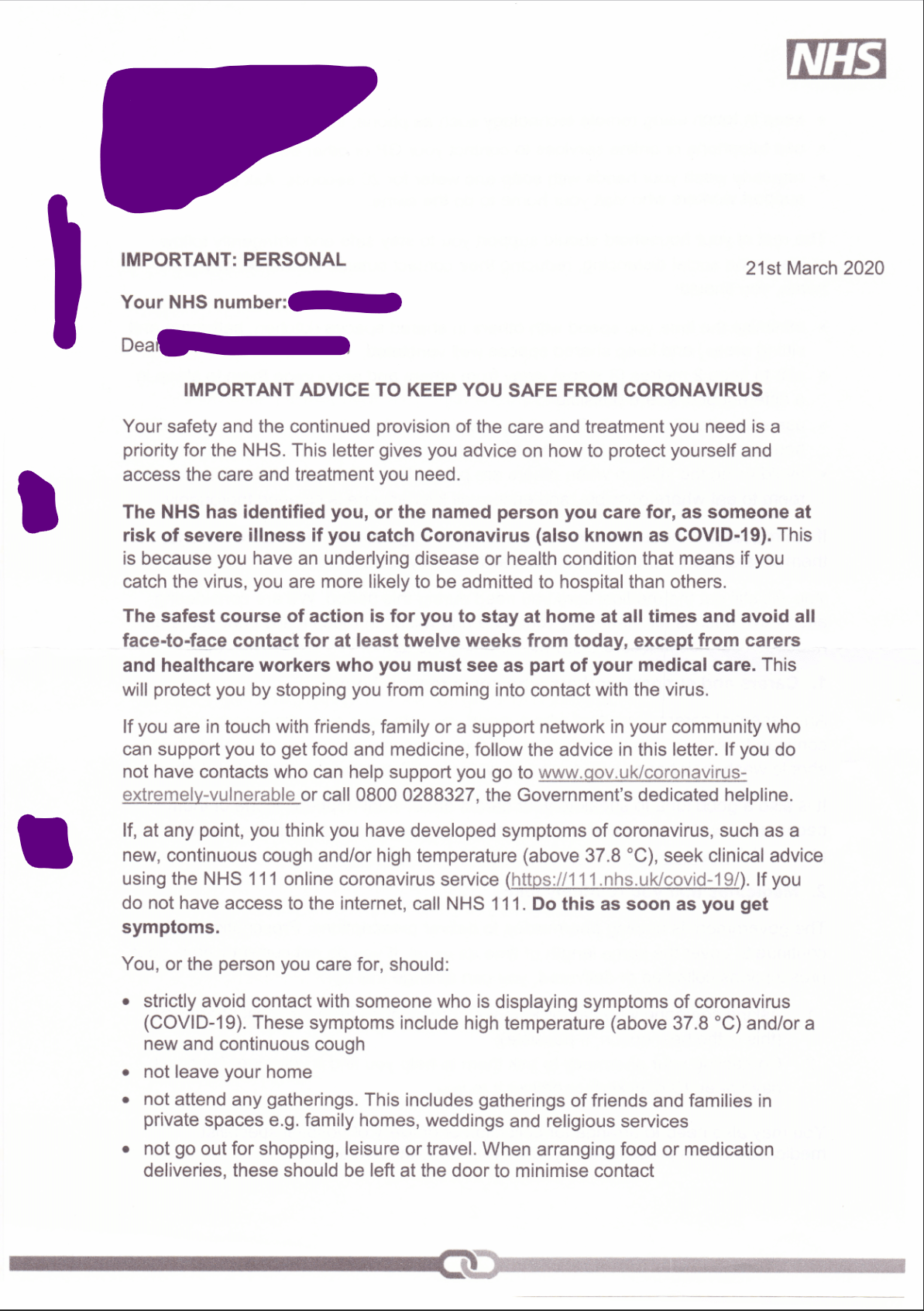
If the government and NHS believe you to be extremely vulnerable then they should have sent you text messages and a letter. For more about this please read this article. It contains information about the letter's content, importance and what to do if you've not received your letter or text messages.
If you are eligible, ensure that the government can provide services to you by registering at: www.gov.uk/coronavirus-extremely-vulnerable or calling 0800 0288327. This will place you on the government's "COVID At Risk" register.
Letters are also going out from St George's renal unit to "plug the gaps". Addressed to GPs and yourself, if you are a dialysis or transplant patient, they ask the GP to place you on the "COVID At Risk" register, and attach another letter of advice.
Who are the National Shielding Helpline?
![]()
While you are at home ‘shielding’ a government support service may contact you by letter, email or telephone. This team is contacting you to understand your food and wellbeing support needs and will always identify themselves with their name and as a representative of the National Shielding Helpline.
To give you confidence, the phone number they’re calling from will register on your phone as 0333 3050466. It is not a live telephone line, but if you call it you will get the following recorded message:
"You were called today by the Shielding Helpline, sorry that we missed you, there is no need to call us back as we will try again soon. Thank you goodbye".
Early on in the call agents from this service will ask you to confirm some details, for example your name and NHS number, to make sure they are speaking to the right person. They will never ask you for information like your National Insurance number or bank details. Your local council may also be in touch.
Where can I get help in an emergency?
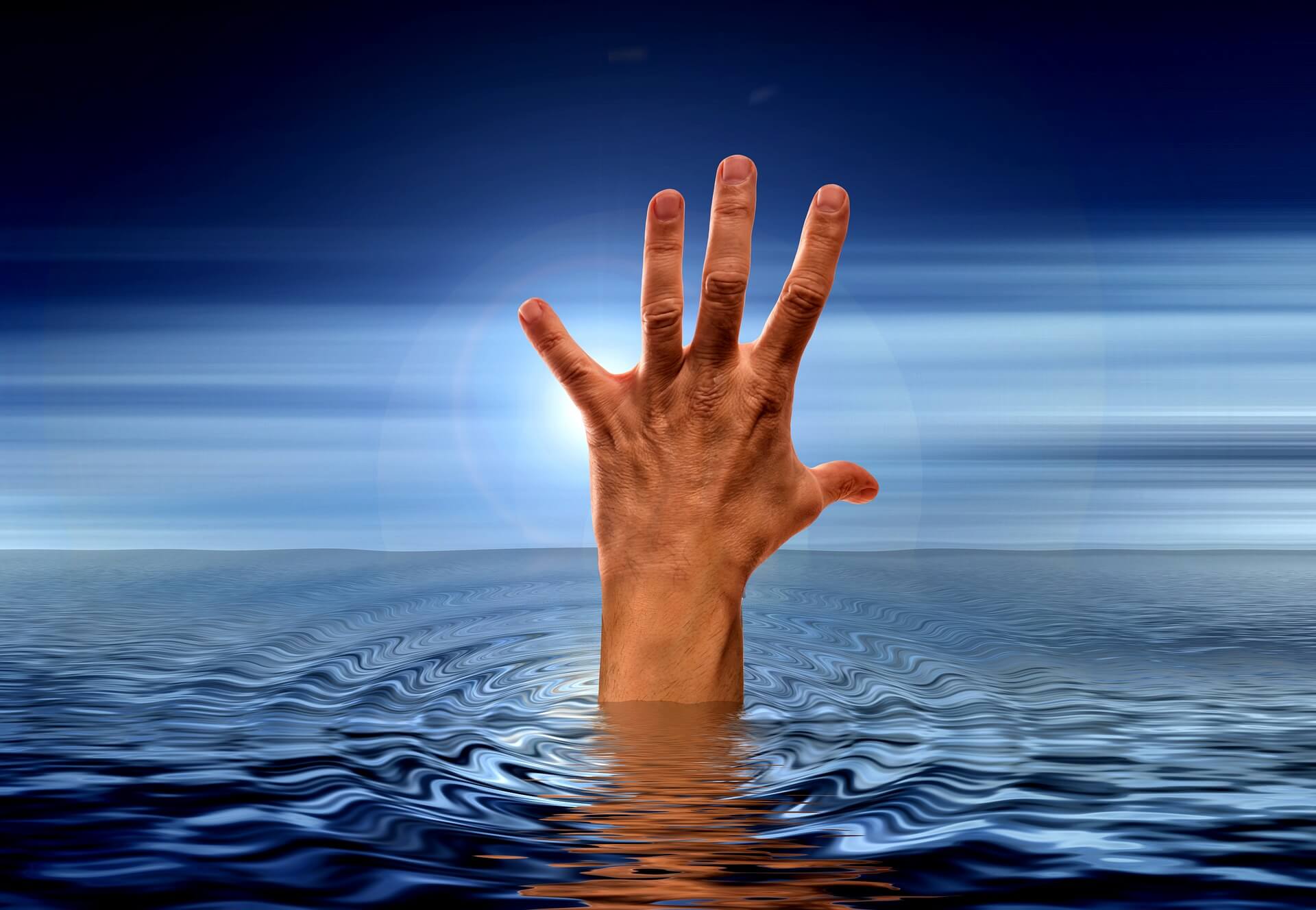
Please don't think that because of the coronavirus pandemic, you can't get help in an emergency.
- Health - If you have a medical emergency you should dial 999. The NHS has stressed that despite the coronavirus crisis they are still open for emergency care.
If you think you have developed symptoms of coronavirus, such as a new, continuous cough and/or a high temperature (above 37.8), seek clinical advice using the NHS 111 ONLINE coronavirus service: https://111.nhs.uk/service/COVID-19. If you do not have access to the Internet call NHS 111. Do this as soon as you get symptoms. - Mental Health - If you should experience a mental health crisis during shielding you should still ask for help; initially over the phone. National helplines can be found here.
- Medication - If you've run out of medication then contact your GP. They will be able to help. Your pharmacist may even, in extreme circumstances, be able to arrange this for you. Please allow extra time for prescriptions to be processed and delivered in this current situation.If you have run out of immunosuppression medication contact the Renal Transplant Clinic.
- Food - The government has given local councils the money and responsibility to look after the most vulnerable in their area. If you or someone you know is struggling to feed themselves, you can contact them and they will send a food box of essential items. Further details can be found in the section on support networks. If you need a food bank’s help because you have no money for food, please contact your local food bank. You can find Trussell Trust's contact details by clicking HERE and then putting your postcode into the food bank finder map provided.
- Money - if you can't use cards or another form of digital payment then you can ask your bank to set up a Trusted Third-Party Mandate. This allows a trusted friend or relative access to your bank account to make cash withdrawals and payments on your behalf. The consumer organisation, Which, has written a guide to help with banking services during the crisis including the benefits and pitfalls of a Trusted Third-Party Mandate.
- Pre-pay meters - If you are unable to afford to heat or light your home, this article has useful advice on help from your utility companies'.
What should I be doing as an extremely vulnerable person?
Stay at home for at least 12 weeks from the 23d of Marchor when you received your letter from the NHS. You will receive more information if this should change.
Read and act on the information in the letter from the NHS. It contains important information that is not written elsewhere. If you have not received one or have lost your copy, please read this article. which contains a copy of the letter.
More government guidance can be found here.
What should the people who live with me be doing to protect me?
While the rest of your household are not required to adopt these protective shielding measures for themselves, we would expect them to do what they can to support you in shielding and to stringently follow guidance on social distancing.
More information is contained in
- In your letter from the NHS
- On the government's website article on shielding
Can my child return to school even though I am shielding?
Your child should only return to school if strict social distancing measures are in place at their school and your child understands how to follow these instructions. This might not be possible for young children - so they may need to stay at home. Your child's school should support them to learn at home. If your child does return to school, they should continue to stay at least 2m away from the person who is shielding.
Keeping yourself busy and active
Planning your day
- Make sure you have one and that you create it before your day starts. Maybe 10 minutes at the end of the week and each day!
- Include variety and things that you enjoy doing.
- Include activities for body and mind.
- Do some of those things that you always wanted to do but never had the time.
- Share part or all your plan with friends and family. Include them too.
- Schedule times to connect with others and to keep in touch. Why not call someone you've meaning to call for ages.
- Start with a healthy breakfast. Plan to cook a healthy meal or better still meals, if you can. Avoid coming grabbing junk food and snacks as a substitute for a balanced meal.
- If you are a dialysis patient continue to follow your fluid restrictions. For transplant patients, make sure you drink 2-3 litres of water a day!
- Set some targets to improve some skill or knowledge and give yourself a sense of accomplishment when you achieve them.
Keeping Active
Whatever your choice of activity always remember to follow government advice on social distancing.
The BBC produced this guide for different ages and situations for exercising while staying at home.
And if you're up to it why not try this if you have marble steps and floors!
And kids?
And if you have children at home with you, why not try these ideas from Birmingham Childfren's Trust?
Looking after your mental health
The NHS has produced a guide called 5 Steps to Mental Wellbeing.
The New Economics Forum produced this guide to wellbeing at a time of social distancing
Mind produced this on Coronavirus and your wellbeing
The government also provided this advice during shielding.
Make sure you connect via technology; from phone to video conference recreate and reinvent your day to create human interaction.
Here are 5 tips by GP and broadcaster Radha Modgil
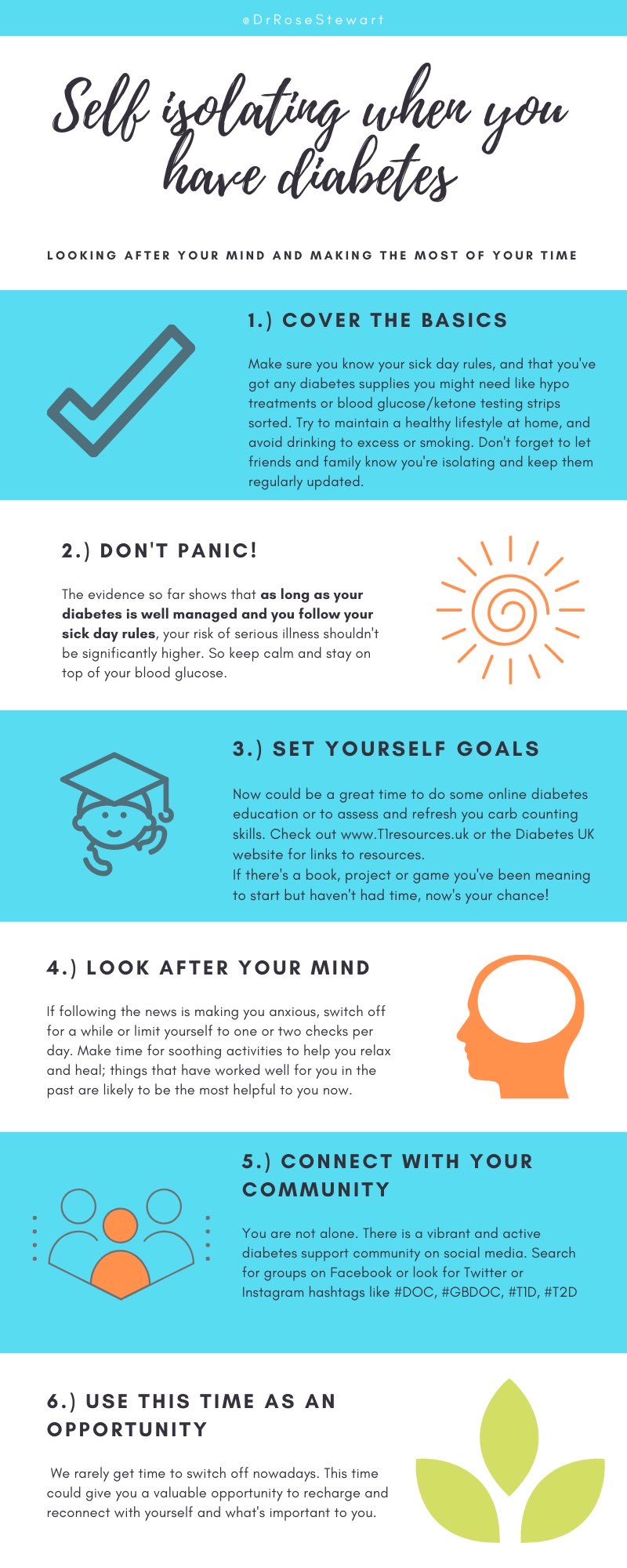
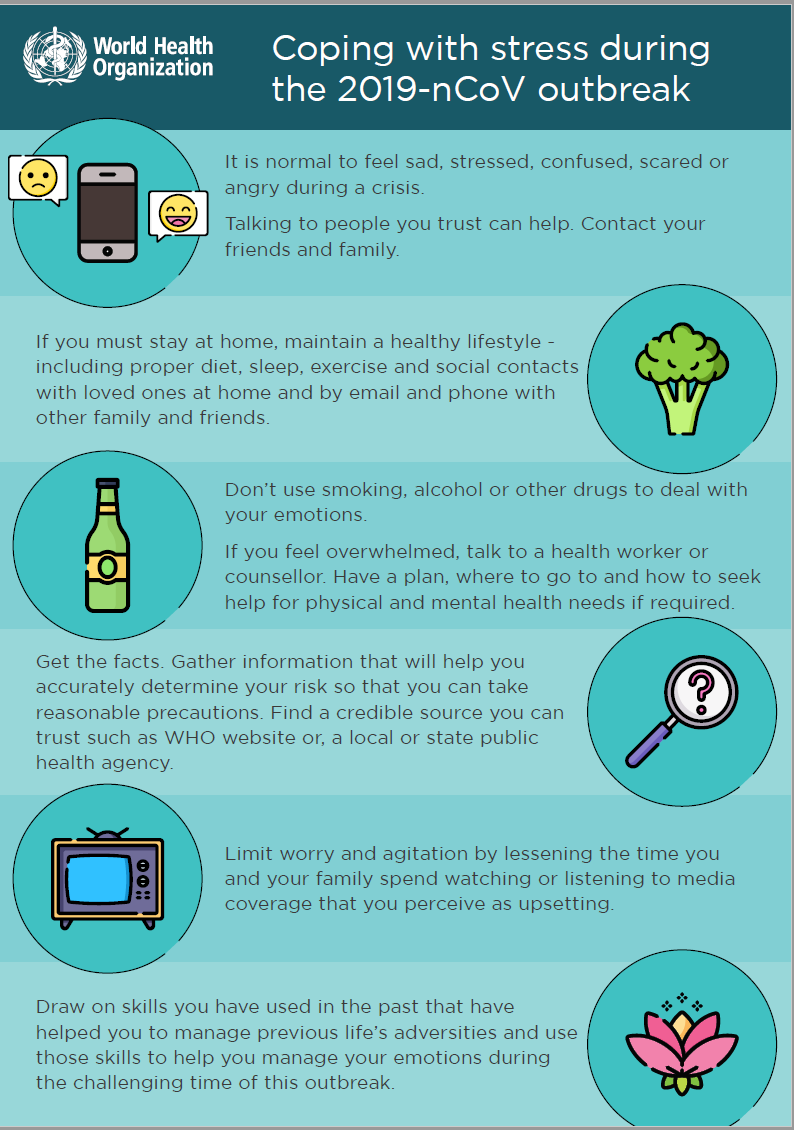
And if you just want a chat, here are 2 options from AGE UK and ourselves.
AGE UK's befriending service
https://www.ageuk.org.uk/services/befriending-services/sign-up-for-telephone-befriending/
St George's Kidney Patients Association
We have had a number of offer to talk with other patients so if you would like to make friends while you are staying at home then email us at info@sgkpa.org.uk
